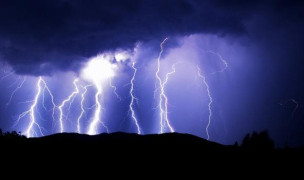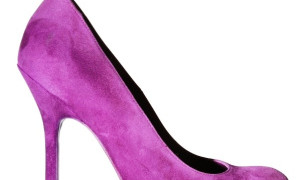 17 Terms
17 TermsHome > Terms > English (EN) > see neighborhoods
see neighborhoods
When Lance Armstrong won the Your de France with the US Postal Service team in 1999 and 2000, American media focused on the personal odds he had overcome in beating cancer. For most Americans, competitive bicycle racing remains a foreign sport, even though American Greg Lemond won the tour in 1986, 1988 and 1989 (overcoming his own hardships); such triumphs probably annoy Europeans more than they elate Americans. In Breaking Away (1979), in fact, the best American cycling movie, the Midwestern hero pretends to be an Italian exchange student to explain his affiliation. The narrative of suffering also dominates Olympic bicycling coverage, where human interest stories deal with America’s failure to win medals. Bikes, then, form part of American life rather than a specialized sport. As such they are both ubiquitous and, at times, dangerously invisible to drivers and policy-makers.
Automobiles ended the bicycle’s turn of the twentieth century golden age as a primary vehicle. In the postwar period, though, bikes remain fundamental features of growing up, as well as of adult recreation. While sales peaked in 1973 at a postwar high of 15 million, they have remained steadily above 10 million per year. Tricycles, training wheels (and their removal) and multi-speed bikes track maturing independence for many American children. Schwinn’s banana-seat Sting-Ray dominated suburban childhoods in the 1960s and 1970s, later giving way to the sportier MBX, with motocross features. Adult tricycles have also been promoted for exercise and independence in old age.
For teenagers, bikes compete with cars in enlarging social worlds or as a convenience on a college campus. For them, as for adults, increasingly expensive bicycles offer recreation alternatives and, occasionally, a commuter choice. This popularity has been shaped by innovations that include the rise of ten-speed touring bikes in the 1960s, followed by trail bikes with balloon tires and stronger frames (pioneered in Northern California in the late 1970s). Sophisticated multi-gear hybrid bikes dominate the market, along with mountain bikes, in the 1990s. Meanwhile, bicycles have entered professional worlds via bike messengers who specialize in artful movements through dense, congested cities; these messengers became the heroes of the 1995 sitcom, Double Rush.
For many years, these bicyclists would have ridden American bikes like Schwinn (founded 1895) and Huffy While Americans design racing and innovative bicycles, production often concentrates overseas, sometimes with American assembly. Americans have also been innovators in recumbent bikes since the 1980s. Both cheap and prestigious foreign models absorb 30 percent of the American market.
In many areas, urban streets and suburban roads have been lobbied for bicycle lanes in an effort to decrease automobile congestion and pollution while protecting bicyclists from collisions. Meanwhile, many parks and beaches are transformed at weekends into cyclists’ worlds, while off-trail areas may sustain serious damage from the growth of mountain biking. Workplaces, schools and homes also accommodate security concerns, while twenty magazines emerged between the 1970s and 1990s dealing with bike interests. Nonetheless, bikes account for only 10 percent of daily trips, in comparison with 30–40 percent in Europe.
- Part of Speech: noun
- Synonym(s): bicycles_₀, Times_Square
- Blossary:
- Industry/Domain: Culture
- Category: American culture
- Company: Routledge
- Product:
- Acronym-Abbreviation:
Other Languages:
Member comments
Terms in the News
Billy Morgan
Sports; Snowboarding
The British snowboarder Billy Morgan has landed the sport’s first ever 1800 quadruple cork. The rider, who represented Great Britain in the 2014 Winter Olympics in Sochi, was in Livigno, Italy, when he achieved the man-oeuvre. It involves flipping four times, while body also spins with five complete rotations on a sideways or downward-facing axis. The trick ...
Marzieh Afkham
Broadcasting & receiving; News
Marzieh Afkham, who is the country’s first foreign ministry spokeswoman, will head a mission in east Asia, the state news agency reported. It is not clear to which country she will be posted as her appointment has yet to be announced officially. Afkham will only be the second female ambassador Iran has had. Under the last shah’s rule, Mehrangiz Dolatshahi, a ...
Weekly Packet
Language; Online services; Slang; Internet
Weekly Packet or "Paquete Semanal" as it is known in Cuba is a term used by Cubans to describe the information that is gathered from the internet outside of Cuba and saved onto hard drives to be transported into Cuba itself. Weekly Packets are then sold to Cuban's without internet access, allowing them to obtain information just days - and sometimes hours - after it ...
Asian Infrastructure Investment Bank (AIIB)
Banking; Investment banking
The Asian Infrastructure Investment Bank (AIIB) is an international financial institution established to address the need in Asia for infrastructure development. According to the Asian Development Bank, Asia needs $800 billion each year for roads, ports, power plants or other infrastructure projects before 2020. Originally proposed by China in 2013, a signing ...
Spartan
Online services; Internet
Spartan is the codename given to the new Microsoft Windows 10 browser that will replace Microsoft Windows Internet Explorer. The new browser will be built from the ground up and disregard any code from the IE platform. It has a new rendering engine that is built to be compatible with how the web is written today. The name Spartan is named after the ...
Featured Terms
low-carbohydrate diet
Low-carbohydrate diets or low-carb diets are dietary programs that restrict carbohydrate consumption, often for the treatment of obesity or diabetes. ...
Contributor
Featured blossaries
Browers Terms By Category
- Gardening(1753)
- Outdoor decorations(23)
- Patio & lawn(6)
- Gardening devices(6)
- BBQ(1)
- Gardening supplies(1)
Garden(1790) Terms
- Wireless networking(199)
- Modems(93)
- Firewall & VPN(91)
- Networking storage(39)
- Routers(3)
- Network switches(2)
Network hardware(428) Terms
- Satellites(455)
- Space flight(332)
- Control systems(178)
- Space shuttle(72)
Aerospace(1037) Terms
- Advertising(244)
- Event(2)
Marketing(246) Terms
- Software engineering(1411)
- Productivity software(925)
- Unicode standard(481)
- Workstations(445)
- Computer hardware(191)
- Desktop PC(183)





